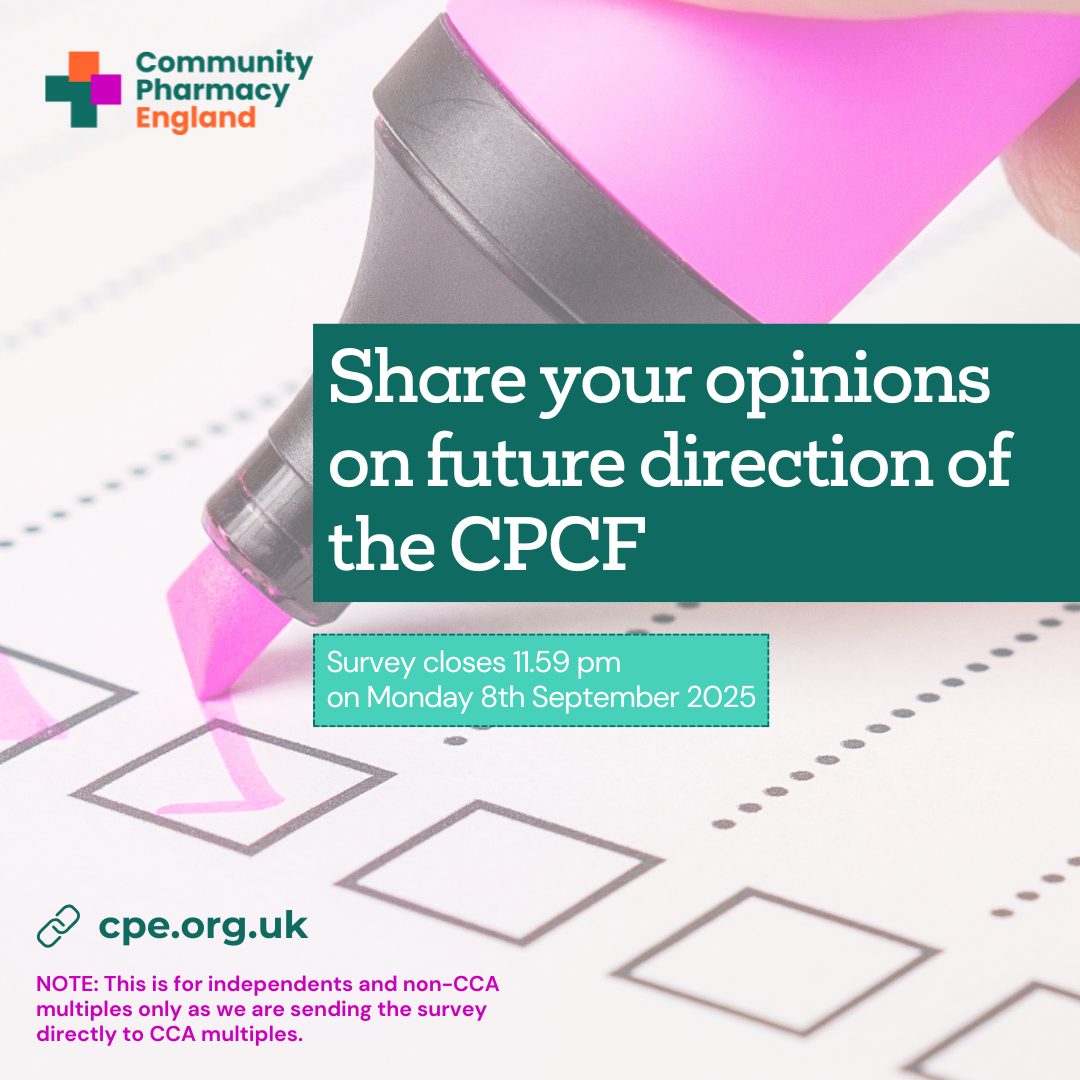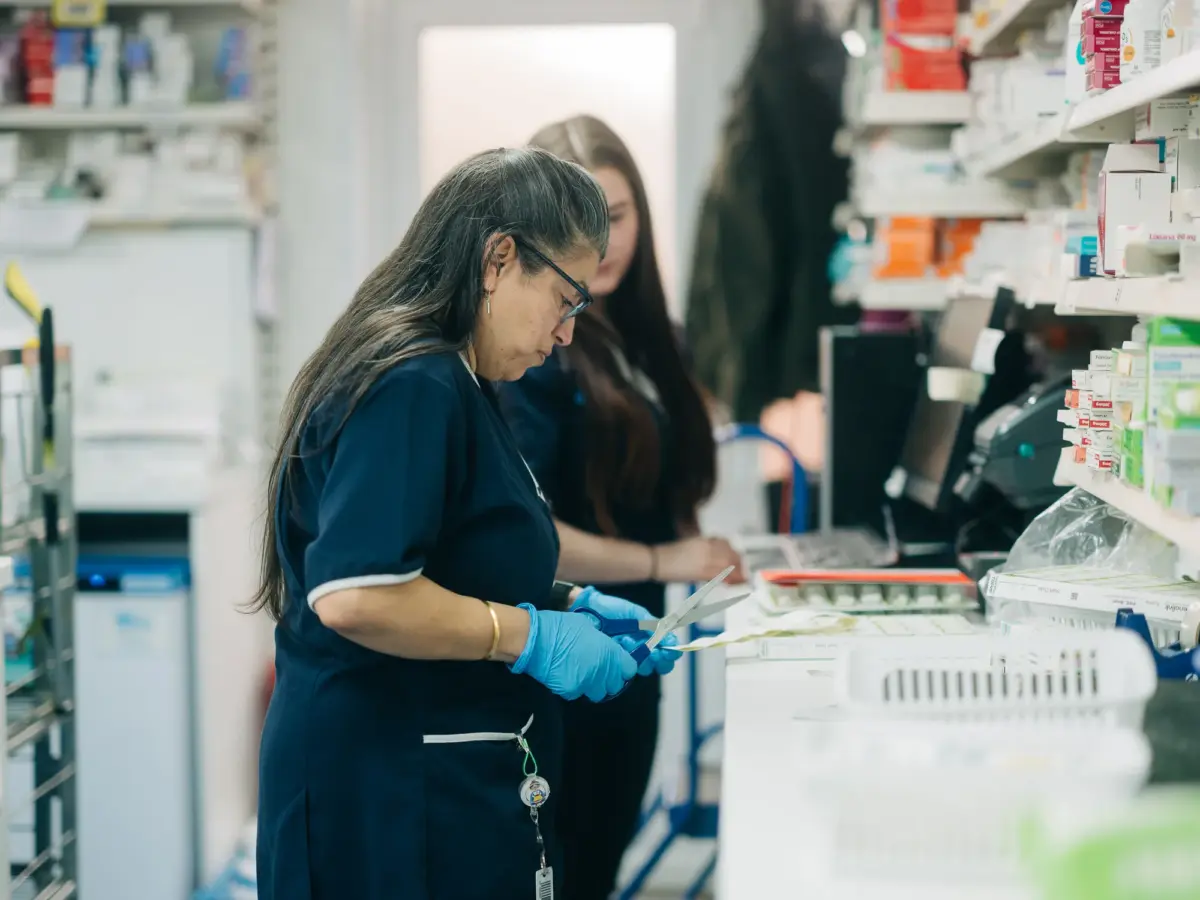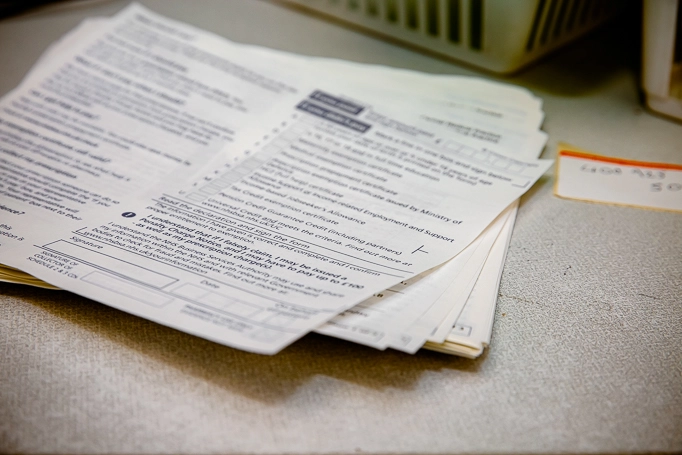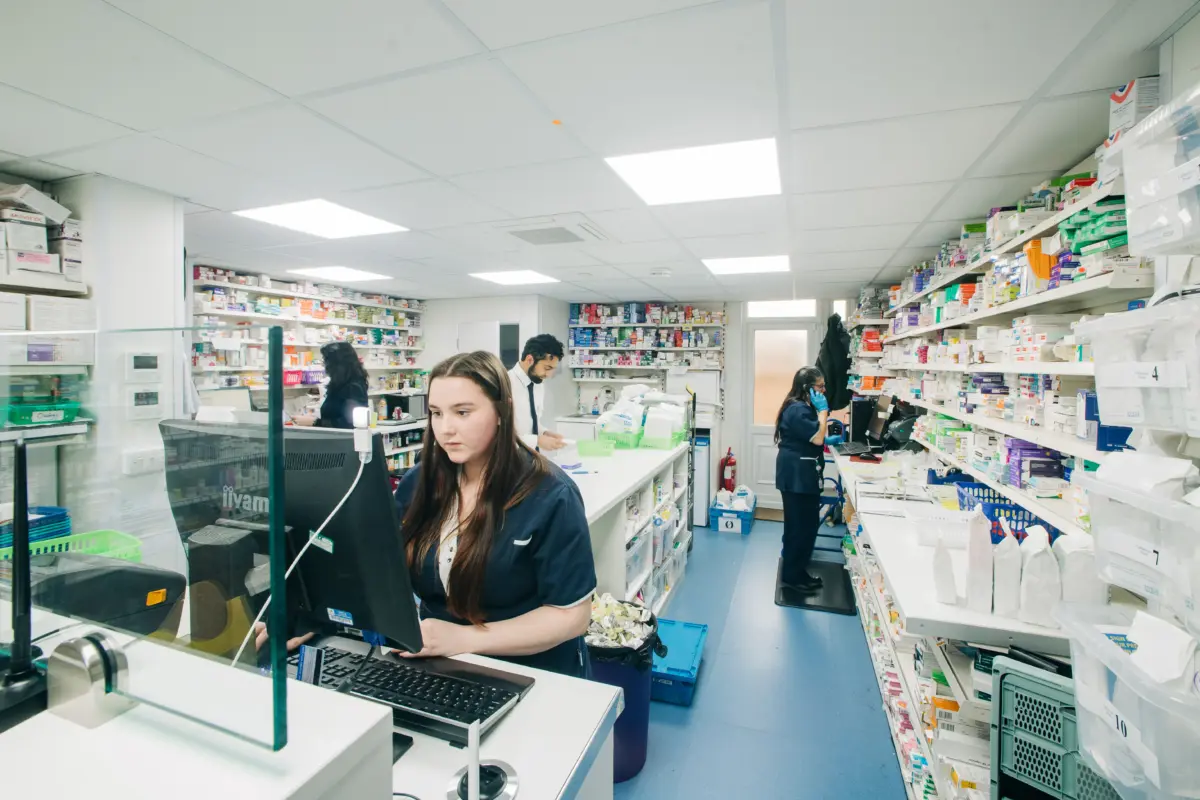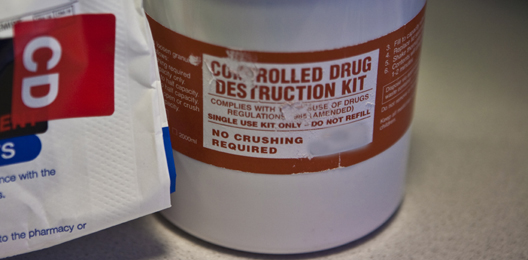NHS complaints procedure
Published on: 23rd July 2013 | Updated on: 1st April 2025
Please note, this page is intended for community pharmacy owners.
If you are a patient or member of the public who wishes to raise an issue about a pharmacy, the first step is to speak to a member of the pharmacy team directly. Further information is available on the NHS England website.
The Clinical Governance Framework requires all pharmacy contractors to have in place arrangements which comply with the requirements of the Local Authority Social Services and National Health Service Complaints (England) Regulations 2009 (the Regulations), for the handling and consideration of any complaints. The Regulations were the outcome of a 2006 Department of Health project, launched following the Shipman inquiry (as well as other inquiries including Ayling, Neale, Kerr and Haslam) to carry out a fundamental review of the complaints systems in both health and social care. The government’s response to these inquiries, ‘Safeguarding Patients’, was published in February 2007.
The Regulations introduced a number of changes to the way that Health and Social Care services are handled, in order to provide complaints procedures that are consistent across all providers and NHS bodies, and deal with complaints efficiently and effectively. There are some differences between these requirements and those that existed in pharmacy before they came into force. The text on this web page can be downloaded as a free-standing briefing on the complaints regulations.
Community Pharmacy England Briefing 091.13 NHS Complaints Procedure (September 2013)
Under the provisions of the National Health Service (Pharmaceutical and Local Pharmaceutical Services) Regulations 2013 pharmacy contractors are required to have in place arrangements for the handling and consideration of complaints. These arrangements must ensure:
- complaints are dealt with efficiently;
- complaints are properly investigated;
- complainants are treated with respect and courtesy;
- complainants receive, so far as is reasonably practical—complainants receive a timely and appropriate response;
- assistance to enable them to understand the procedure in relation to complaints; or
- advice on where they may obtain such assistance;
- complainants are told the outcome of the investigation of their complaint; and
- action is taken if necessary in the light of the outcome of a complaint.
Click on the headings below for more information.
The Regulations include several major elements which are described in detail below. These are:
- Each pharmacy must appoint a ‘responsible person’;
- Oral complaints dealt with to the satisfaction of the complainant no later than the following day do not need to be handled under the new procedures;
- The time limit for making complaints is 12 months;
- The pharmacy must offer to discuss handling of the complaint and setting the time for a response, with the complainant;
- The maximum time for responding to a complaint is six months;
- An ‘annual report’ about complaints must be published, made available to anyone who requests it and sent to the local NHS team.
Responsible Person
The pharmacy contractor is required to designate a responsible person, to be responsible for ensuring compliance with the arrangements and in particular ensuring that action is taken if necessary in the light of the outcome of a complaint.
The responsible person is required to be the chief executive officer of the company, or if the pharmacy contractor is a partnership, must be one of the partners. In the case of a pharmacy business operated by a sole proprietor, the responsible person must be that sole proprietor.
The functions of the responsible person may be performed by any person authorised by the pharmacy contractor to act on behalf of the responsible person – but ultimately, the responsibility for ensuring compliance remains with the chief executive, partner or sole proprietor as appropriate.
Complaints Manager
The pharmacy contractor is required to designate a complaints manager, to be responsible for managing the procedures for handling and considering complaints in accordance with the arrangements.
The complaints manager need not be an employee, could be the same person as the responsible person, or could even be a complaints manager designated by another pharmacy contractor.
The functions of the complaints manager may be performed by any person authorised by the responsible body to act on behalf of the complaints manager.
A complaint can be made by the person who receives services from, or who is or is likely to be affected by an act, omission or decision of the pharmacy contractor.
A complaint can also be made by a representative of a person who:
- has died;
- is a child (a person under the age of 18 years);
- is unable to make a complaint because of a physical incapacity or lack of mental capacity;
- has requested the representative to act on their behalf.
Where the complaint is made on behalf of a child, the pharmacy contractor must not consider the complaint unless satisfied that there are reasonable grounds for the complaint being made by the representative instead of the child. The pharmacy contractor must also not consider or further consider the complaint unless satisfied that the representative is conducting the complaint in the best interests of the child. If the pharmacy contractor does not believe there are reasonable grounds for the representative making the complaint or is not conducting the complaint in the best interests of the child, the representative must be notified in writing, with the reasons why the pharmacy contractor is not considering the complaint made via the representative.
Where the complaint is made on behalf of a person who is unable to make the complaint because of a lack of mental capacity, the pharmacy contractor must not consider or further consider the complaint unless satisfied that the representative is conducting the complaint in the best interests of the person on whose behalf the complaint is made. If the pharmacy contractor does not believe the representative is conducting the complaint in the best interests of the person on whose behalf the complaint is made, the representative must be notified in writing, with the reasons why the pharmacy contractor is not considering the complaint made via the representative.
A pharmacy contractor has a duty to handle complaints under the regulations only about the pharmaceutical services provided under arrangements with an NHS body, such as a local NHS Team.
Where a complaint is made to a pharmacy contractor but it appears to the pharmacy contractor that it should have been made to another body, the pharmacy contractor should, with the consent of the complainant, send the complaint onto that body.
If a complaint is made to a local NHS Team about the services provided under arrangements with the local NHS Team by a pharmacy contractor, the local NHS Team must ask the complainant whether the complainant consents to details of the complaint being sent to the pharmacy contractor. If the complainant consents, the local NHS Team must as soon as reasonably practicable send details of the complaint to the pharmacy contractor.
If the local NHS Team considers that it is appropriate for it to deal with the complaint, it must notify the complainant and the pharmacy contractor and must continue to handle the complaint in accordance with the Regulations.
But, if the local NHS Team considers that it is more appropriate for the complaint to be dealt with by the pharmacy contractor, and the complainant consents, the local NHS Team must notify the complainant and the pharmacy contractor.
Where complaints have been forwarded by the local NHS Team or another body to a pharmacy contractor, the complaint is deemed to have been made by the complainant.
Complaints that are not required to be dealt with
The following complaints are not required to be dealt with under the NHS arrangements:
- a complaint which is made orally and is resolved to the complainant’s satisfaction not later than the next working day after the day on which the complaint was made;
- a complaint the subject matter of which is the same as that of an oral complaint that has previously been made and resolved to the complainant’s satisfaction as above;
- a complaint by a ‘responsible body’ (e.g. another pharmacy contractor or a local NHS Team) – but where the complaint has simply been forwarded by one of these bodies as above, the pharmacy contractor is under a duty to deal with the complaint;
- a complaint the subject matter of which has previously been investigated under the Regulations or a complaint made before 1 April 2009 which has been investigated under a relevant complaints procedure;
- a complaint the subject matter of which is being or has been investigated by a Health Service Commissioner e.g. the Ombudsman under the Health Service Commissioners Act 1993;
- a complaint arising out of the alleged failure by the pharmacy contractor to comply with a request for information under the Freedom of Information Act 2000.
The second significant change is shown in the first of the above bullet points where recognition is given that some complaints can be handled with minimal formality. Where a complaint has been made orally and has been resolved to the complainant’s satisfaction not later than the next working day, then the complaint does not have to be dealt with under the detailed Regulations.
If the pharmacy contractor decides that a complaint is not required to be dealt with, for one of these reasons, it must as soon as reasonably practicable notify the complainant in writing of its decision and the reason for the decision (this does not apply to the complaints made orally and which have been resolved to the complainant’s satisfaction).
Duty to co-operate with other bodies
Where a pharmacy contractor passes a complaint to another body such as another pharmacy contractor or the local NHS Team or is passed a complaint by another body, both the pharmacy contractor and that other body have a duty to co-operate to ensure that the handling of the complaint is coordinated and ensuring the complainant receives a coordinated response.
Each body must, in particular, seek to agree which of the bodies should take the lead in coordinating the handling of the complaint and communicating with the complainant; provide to the other body information relevant to the complaint that is reasonably requested by the other body, and to attend or ensure it is represented at any meeting reasonably required in connection with consideration of the complaint.
Time limit for making a complaint
A complaint must be made no later than 12 months after the date on which the matter which is the subject of the complaint occurred; or if later, the date on which the matter came to the notice of the complainant. If the pharmacy contractor is satisfied that the complainant had good reason for not making the complaint within this time limit and that it is still possible to investigate the complaint effectively and fairly, then the time limit does not apply.
Form of communications
If the complainant consents (and has not withdrawn that consent) any communication with the complainant required by the regulations can be sent electronically. When sending electronically, the requirement for a signature is met if the person authorised to send the communication types their name or produces their name using a computer or other electronic means.
Procedure before investigation
A complaint may be made orally, in writing or electronically, but if made orally the pharmacy contractor must make a written record of the complaint and provide a copy of this record to the complainant.
The pharmacy contractor must acknowledge the complaint not later than 3 working days after the date on which the complaint is received. Working days under these regulations means Mondays to Fridays which are not Christmas Day, Good Friday or a Bank Holiday. The acknowledgement may be made orally or in writing.
Community Pharmacy England has prepared a number of tools which may be used by pharmacy contractors, and these can be downloaded below. The use of these templates are not mandatory. The first template, is a letter to acknowledge the receipt of a complaint.
Acknowledgement letter (MS Word)
At the time of acknowledging the complaint, the pharmacy contractor must offer to discuss with the complainant, at a time to be agreed with the complainant –
- the manner in which the complaint is to be handled; and
- the response period within which—
- the investigation of the complaint is likely to be completed; and
- the final response is likely to be sent to the complainant.
The time for response is for the pharmacy contractor and complainant to agree (but this should not normally exceed six months – see later). If the complainant does not accept the offer of a discussion the pharmacy contractor must determine the response period and notify the complainant in writing of that period.
Investigation and response
A pharmacy contractor must investigate the complaint in a manner appropriate to resolve it speedily and efficiently and during the investigation, keep the complainant informed, as far as reasonably practicable, as to the progress of the investigation.
During an investigation, it may be necessary to interview the complainant, members of staff, or others who are able to give an account which may help establish the facts. Community Pharmacy England has prepared a template interview record which may be useful.
Complaint Interview Form (MS Word)
Complaint Interview Form (PDF)
As soon as reasonably practicable after completing the investigation, the pharmacy contractor must send the complainant in writing a response, signed by the responsible person, which includes —
- a report which includes the following matters—confirmation as to whether the pharmacy contractor is satisfied that any action needed in consequence of the complaint has been taken or is proposed to be taken;
- an explanation of how the complaint has been considered; and
- the conclusions reached in relation to the complaint including any matters for which the complainant or pharmacy contractor considers remedial action is needed; and
- details of the complainant’s right to take their complaint to the Health Service Commissioner under the 1993 Act.
The pharmacy contractor has up to six months in which to make the response to the complainant.
The principles of ‘Making Experiences Count’ include ensuring the complainant receives a timely response. The Regulations recognise that some investigations may take longer than the former limit of 25 days, but this should not be seen as a reason to delay the investigation or response.
If the pharmacy contractor does not send the complainant a response within 6 months of receipt or such longer period as agreed before the end of that 6 month period between the pharmacy contractor and the complainant, the pharmacy contractor must notify the complainant in writing and explain the reason why; and send the complainant in writing a response as soon as reasonably practicable.
Because of the possibility that the complainant made the complaint in order to gain information so as to pursue a civil claim against the pharmacy contractor or staff, it may be helpful to ask the professional indemnity insurer for advice on the proposed response, before it is dispatched.
Each pharmacy contractor must make information available to the public as to its arrangements for dealing with complaints; and how further information about those arrangements may be obtained. Community Pharmacy England has prepared three templates which pharmacy contractors may find helpful. The first is a ‘flyer’ that publicises the fact that the pharmacy has a complaints procedure.
Complaints Flyer (MS Word)
The second template is the procedure that the pharmacy uses for dealing with Suggestions, Comments and Complaints.
Suggestions, Comments and Complaints Procedures (MS Word)
The third is a form which a user of the pharmacy services can complete to make suggestions, comments or complaints.
Suggestions, Comments and Complaints Form (MS Word)
Under the clinical governance framework, a pharmacy is required to publish a practice leaflet. One of the items within that leaflet is ‘how to find out more about services offered, comment on those services, or make a complaint’; The pharmacy practice leaflet could simply refer to the availability of a ‘Suggestions, Comments and Complaints’ leaflet.
For the purpose of monitoring the arrangements each pharmacy contractor must maintain a record of the following matters:
- each complaint received;
- the subject matter and outcome of each complaint; and
- where the pharmacy contractor informed the complainant of—
- the response period; or
- any amendment to that period,
whether a report of the outcome of the investigation was sent to the complainant within that period or any amended period.
Community Pharmacy England has prepared a template complaint record, which contains all the necessary detail, and which can be used to ensure each step of the complaints process is followed.
Complaint record form (MS Word)
Complaint record form (PDF)
Each pharmacy contractor must prepare an annual report for each year, ending 31 March, which must—
- specify the number of complaints which the pharmacy contractor received;
- specify the number of complaints which the pharmacy contractor decided were well-founded;
- specify the number of complaints which the pharmacy contractor has been informed have been referred to the Health Service Commissioner to consider under the 1993 Act; and
- summarise—
- the subject matter of complaints that the pharmacy contractor received;
- any matters of general importance arising out of those complaints, or the way in which the complaints were handled;
- any matters where action has been or is to be taken to improve services as a consequence of those complaints.
The annual report must be available to any person on request.
The pharmacy contractor must also send a copy of its annual report to the local NHS England team as soon as reasonably practicable after the end of the year to which the report relates.
NHS England local team email addresses for community pharmacy matters
To assist pharmacies, Community Pharmacy England has prepared a template summary of complaints, which can be used as an index of complaints as they are received and closed. All the information necessary to produce the annual report can then be collated from this summary at the end of each year.
Summary of complaints (MS Word)
Summary of complaints (PDF)
Local NHS Teams may ask pharmacies to produce evidence during monitoring visits, that they are complying with the complaints regulations. Producing the summary of complaints, with collated copies of the complaints regulations will provide evidence, but the detail on these forms contains sensitive personal information about the complainant so should not be disclosed unless the complainant has consented. If the local NHS Team has decided to investigate a complaint made to it, then disclosure of the information in the pharmacy’s complaint record may be appropriate.
During the piloting of the new complaints procedures, the need to be able to support people who wish to make complaints was identified. The following are not part of the Regulations, but provide some background which may be helpful.
Professional guidance
Pharmacy contractors should remember that if a complaint is made as the result of an error or other patient safety incident, they should make a record of the incident and should report the incident to NHS England via the LFPSE service. In 2021, a replacement for the NRLS – the Learn from patient safety events (LFPSE) service – was launched and contractors should now use that system for reporting patient safety incidents.The Community Pharmacy England website has templates for recording patient safety incidents and further guidance on reporting incidents to NHS England.
Q. A patient with a private prescription wants to complain. Do the Regulations apply?
A. No. The NHS complaints procedure outlined above applies only to patients in receipt of treatment carried out or paid for by NHS England and does not apply to private treatment. Contractors who supply drugs and/or appliances against private prescriptions may wish to have a separate complaints procedure for private patients.
Q. A patient is dissatisfied with the outcome of their complaint. They have asked me what they can do next.
A. If a patient remains unhappy with the way in which the complaint has been handled after this stage, they can then contact the Parliamentary and Health Service Ombudsman (the Ombudsman) (also known as the Health Service Commissioner). The Ombudsman is independent from NHS England, carries out investigations into complaints made about the service a patient has received from the NHS in England and the Ombudsman’s remit covers community pharmacists. More information can be found on the Ombudsman’s website here.
Q. When the new independent patient safety investigation service (IPSIS) starts in April 2016 does this change anything?
A. No. Things remain largely the same. IPSIS is expected to offer support and guidance to NHS organisations on investigations, and carry out certain (probably high profile, those with likely high public interest value) investigations itself. IPSIS will be supported by an Expert Advisory Group which is tasked to make recommendations on the scope, governance and operating model for IPSIS. It will draw on the expertise of its members in patient safety, healthcare and investigation and evidence from a broad range of stakeholders, including service users and staff. The function’s name was changed to the Healthcare Safety Investigation Branch (HSIB).
Further information is available on the government website here.
Q. I have not received any complaints. Do I still need to prepare an annual complaints report?
A. Yes, pharmacy contractors must prepare an annual complaints report confirming that they have received no complaints in the year ending 31 March and send a copy of its annual report to the local NHS Team as soon as reasonably practicable after the end of the year to which the report relates.
Under the terms of service, an NHS pharmacist must have in place arrangements, which comply with the requirements of the Local Authority Social Services and National Health Service Complaints (England) Regulations 2009, for the handling and consideration of any complaints.
One of those requirements is that each pharmacy contractor must prepare an annual report for each year, ending 31 March. Therefore, all pharmacy contractors must comply with this even where they have not received any complaints.
For more information on this topic please email regulations.team@cpe.org.uk


